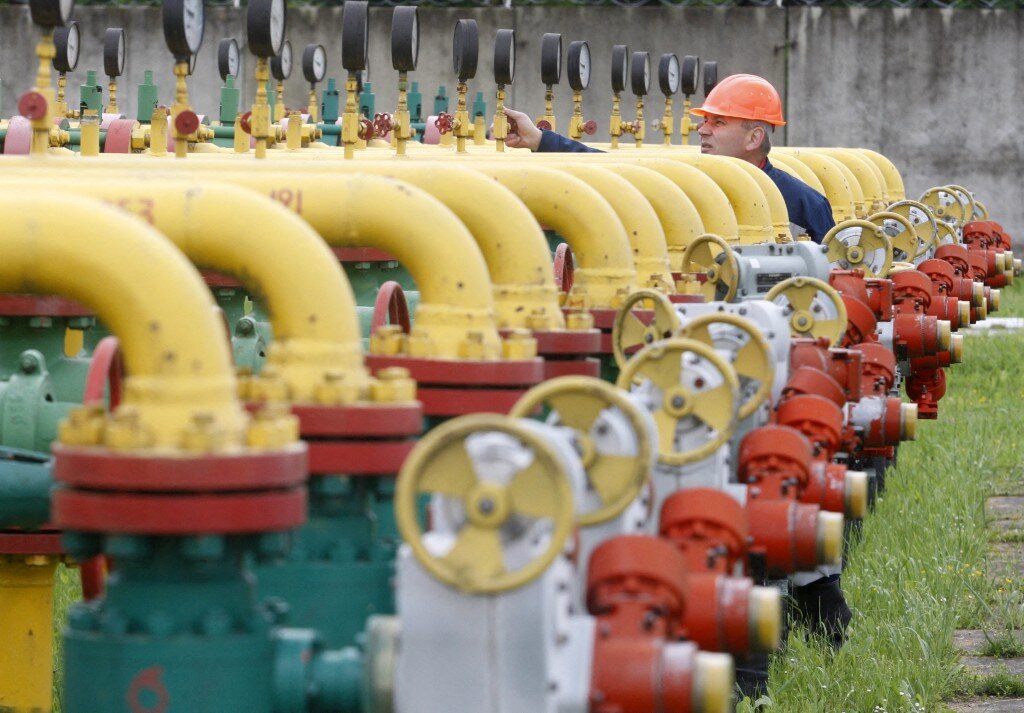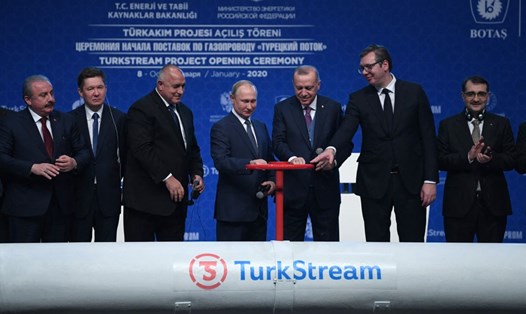A deal to transit Russian gas through Ukraine is set to expire at the end of this year. Against that backdrop, companies from Hungary and Slovakia are close to signing contracts to buy 12 billion to 14 billion cubic meters of gas a year from Azerbaijan, people familiar with the matter told Bloomberg.
The new gas contract to replace Russian gas will use the existing gas pipeline network that currently carries Russian gas through Ukraine to the EU.
New gas supplies from Azerbaijan will effectively replace the Russian gas that Europe is receiving under the transit agreement via Ukraine.
The new contract will need to be implemented under a swap agreement between Azerbaijan and Russia because Azerbaijan does not have enough export capacity to replace existing supplies, Bloomberg said.
European gas prices for December fell as much as 8.1% after news of progress in negotiations to buy gas from Azerbaijan.
The deal, which is still under negotiation, could help stabilize gas prices after recent market volatility.
However, the European Commission (EC) - the EU's executive body - has previously asserted that the region's energy security will not be threatened after the end of the Russian gas transit agreement via Ukraine. Slovakia and Austria are among the European countries that continue to import Russian gas via the gas pipeline through Ukraine.
Under the deal being negotiated, Azerbaijan's state-owned energy company Socar will supply gas to the Sudzha facility on the Russian-Ukrainian border. Hungary's MVM Zrt and Slovakia's Slovensky Plynarensky Priemysel AS will then take over and deliver the gas to Europe.

Bloomberg notes that any trade deal would require political approval from Ukrainian officials for the country’s gas pipeline network operator to determine operations.
Austria's OMV AG said it has diversified its supply contracts and can continue supplying fuel to customers even if gas deliveries from Russia are halted.
Before the Russia-Ukraine conflict broke out, Gazprom supplied Europe with more than a third of the bloc’s gas consumption. However, since the conflict broke out, the EU has diversified its energy supplies. It now has a variety of sources, including Norway, North Africa, Azerbaijan and liquefied natural gas from the global market.
The new agreement with Azerbaijan by European countries means that Ukraine will continue to receive transit fees for using its pipeline network to deliver gas to Europe. Transit fees have brought Ukraine around $800 million a year in revenue in recent years.
For Azerbaijan, the gas deal also strengthens its energy ties with Europe. The Caspian Sea nation supplies gas to eight European countries via a pipeline that runs through Turkey.










